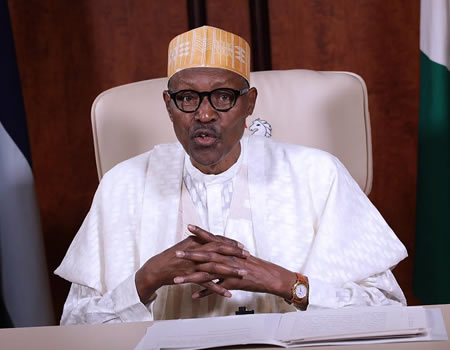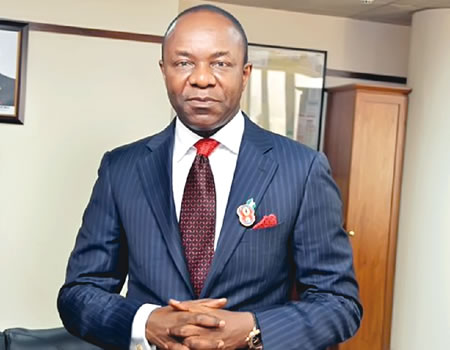
The House of Representatives passed the Petroleum Industry Governance Bill (PIGB) last week after the Senate passed the bill in May 2017. All oil and gas stakeholders will now focus attention on the President who also is the substantive Minister of Petroleum Resources, Muhammadu Buhari, to initiate a lasting solution to challenges confronting oil and gas reforms. OLATUNDE DODONDAWA reports.
SEVERAL oil and gas reforms were attempted by previous administrations since 1999 without success due to what stakeholders called ‘obsolete’ Petroleum Act 1969.
While the Petroleum Act is the principal statute that governs petroleum operations, including exploration, production and use. It vests ownership and control of all petroleum exclusively in the government and the exercise of the powers consequent on this title in the minister of petroleum resources.
However, the Petroleum Act has its subsidiary legislation, including the Petroleum (Drilling and Production) Regulations, the Petroleum Regulations and the Petroleum Refining Regulations, govern petroleum operations in Nigeria including, but not limited to, exploration, development, production, storage, transportation, refining and marketing.
The Oil Pipelines Act and the Oil and Gas Pipelines Regulations provide the legal and regulatory framework for the establishment, operation and maintenance of pipelines that are incidental and supplementary to oil and gas operations in Nigeria.
The Deep Offshore and Inland Basin Production Sharing Contracts Act prescribes fiscal incentives for companies operating in the deep offshore and inland basin areas of Nigeria under production sharing contracts.
The Nigerian National Petroleum Corporation (NNPC) Act establishes the Nigerian National Petroleum Corporation, which participates in petroleum operations on behalf of the government.
The Nigerian Oil and Gas Industry Content Development Act aims to enhance the development of indigenous capacity across the Nigerian oil and gas industry. It sets minimum Nigerian content prescriptions for various services and requires that first consideration be provided to companies incorporated in Nigeria (i.e, with 51 per cent of equity owned by Nigerian parties) in the award of oil blocks and licences.
Efforts to harmonise various laws governing the oil and gas sector began in the year 2000 when the Petroleum Industry Bill (PIB) was drafted, but lack of political will, tribalism, sentiments, corruption, amongst other factors killed the bill.
Why Saraki-led Senate prioritises the PIB
Shortly after the 8th Assembly was inaugurated on 9th June 2015, the Senate President, Bukola Saraki, said that the Senate will prioritise the PIB.
According to him, “We have to engage discussion and dialogue. We can break the jinx which can only be achieved devoid of politics. PIB is a priority in this Senate. We will break down the bulkiness of the bill and tackle all the grey areas. We will continue to come up with legislation that will make our country an investment destination and provide conducive environment for such investment to thrive.”

In affirming its comitment to pass the PIB, it was split into four major bills namely: the Petroleum Industry Governance Bill (PIGB), the Petroleum Industry Fiscal Bill and Petroleum Host Community Bill, the Upstream and Midstream Administration Bill and the Petroleum Revenue Bill.
In October 2015, Emmanuel Ibe Kachikwu, Minister of State for Petroleum Resources, confirmed that the country lost about N3trillion worth of investment annually due to the non-enactment of the PIB and this, amongst others made the bill a priority for the present administration.
PIGB in summary
The PIGB is a bill that aims to establish the Nigerian Petroleum Regulatory Commission (NPRC) as a one-stop regulator that will be responsible for licensing, monitoring, supervising petroleum operations, as well as enforcing industry laws, regulations and standards. This means that the President will no longer have the executive power to allocate oil blocks.
Some of the existing regulatory agencies like Department of Petroleum Resources (DPR), Petroleum Products Pricing Regulatory Agency (PPPRA) and others will continue to exist while some will be merged with others to form new agencies. This is to avoid function overlap as currently being experienced in the oil and gas sector.
In the PIGB, the regulatory functions of the Minister of Petroleum Resources under the Petroleum Act and the Oil Pipelines Act will be transferred to the Commission, which will be governed by a nine-man board with a fixed tenure whose composition shall include one representative from each of the ministries of petroleum resources, finance and environment.
The Commission is vested with the power to make regulations, similar to the powers of the Minister of Petroleum Resources under the Petroleum Act but the PIGB enables the Minister to retain certain powers of discretion to “do all such other things as are incidental and necessary” for the performance of his ministerial functions.
The PIGB requires government to privatise up to 40 per cent of the NPC’s shareholding within 10 years of the Commission’s incorporation. The government must give up at least 10 per cent of its shares within the first five years and an additional 30 per cent over a period of another five years.
The divestment is required to be conducted in a transparent manner and may include the sale/transfer of the divested shares to institutional or strategic investors. This means that citizens can own a stake in the national oil company subject to any terms put forward for the privatisation exercise.
In the PIGB, existing licences, leases, certificates, authority or permits issued by the DPR will remain valid and have effect for the remainder of the period for which they were granted.
Reactions by stakeholders to passage of PIGB
The Nigeria Extractive Industries Transparency Initiative (NEITI) has welcomed with excitement, the bold step by both chambers of the National Assembly to pass the PIGB.
Acording to a statement by NEITI, the decision of the Senate and the House of Representatives to consider the Bill as priority resulting in its eventual passage is bold, courageous and progressive. This is given the challenges the bill has passed through in its legislative journey for over 10 years.
NEITI as an agency set up to enthrone transparency and accountability in the management of extractive industries in Nigeria has legitimate interest in the PIGB.
NEITI’s interest is in view of the urgency and strategic importance of a new law to replace the existing archaic legislations that have aided huge revenue losses, impeded transparency, accountability and investment opportunities in the nation’s oil and gas industry.
NEITI recalls that as an anti-corruption agency in the sector, it boldly alerted the nation last year through a special Policy Brief “The urgency of a new petroleum sector law” that the current stagnation of investment opportunities in the Petroleum Industry was as a result of the absence of a new law for the sector. This has led to huge revenue losses to the tune of over $200billion.
In addition, NEITI reports in the sector had also disclosed that over $10.4billion and N378.7billion were lost through under-remittances, inefficiencies, theft or absence of a clear governance framework for the oil and gas industry. The total cost to the nation in 2013 alone was N1.74 trillion largely as a result of the absence of a new law.
NEITI is optimistic that with the new governance law for the industry, these huge revenue losses to the nation as a result of process lapses and outright stealing will be strictly checked if not eliminated.
NEITI remains convinced that the PIGB when assented to by the President will provide a dynamic governance framework required to re-position the petroleum industry to fully embrace competition, openness, accountability, professionalism and better profit returns on investments to both companies and government.
NEITI is encouraged that the National Assembly in this particular instance threw politics aside and dealt with the PIGB issue with the attention it deserves. The PIGB now passed and ready for possible Presidential assent is a product of this creative initiative.
However, NEITI urged the National Assembly to show similar coordinated attention to commence legislative process in the remaining legal frameworks in the industry especially the Petroleum Industry Fiscal Bill and the Host Communities Bill. It said the two key pending legislations will help complement and strengthen the provisions of the PIGB.
Conclusively, it is now hoped that President Muhammadu Buhari and as the substantive Minister of Petroleum Resources, knows the importance of the PIGB to Nigeria in helping to attract much needed foreign investment to open up new acreages and oil wells and assent his signature to the PIGB.



